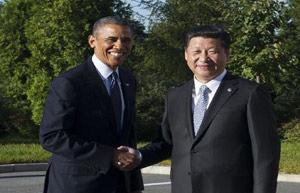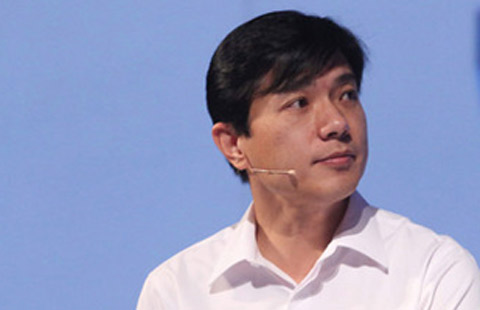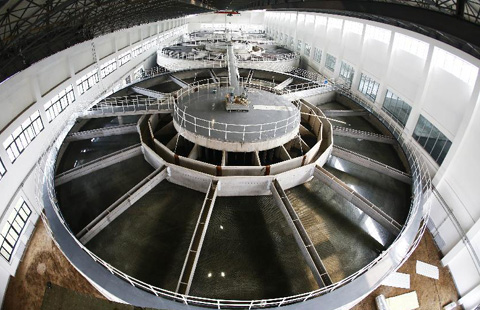Fed announces end to quantitative easing stimulus, keeps low rates
(Xinhua) Updated: 2014-10-30 11:00WASHINGTON - The Federal Reserve said Wednesday that it decides to end the six-year pump-priming, as it sees the economy is improving on track from the worst financial crisis in decades. But it pledged to keep low interest rates in a longer run to nurture the hard-earn recovery.
The Fed's monetary policy committee announces the end to the third round of monthly asset purchase program, as it "continues to see sufficient underlying strength in the broader economy to support ongoing progress toward maximum employment in a context of price stability," according to a statement after its two-day meeting.
The committee said it is maintaining its existing policy of reinvesting principal payments from its holdings of agency debt and agency mortgage-backed securities to help maintain accommodative financial conditions.
To salvage the world's largest economy from the worst financial meltdown since the "Great Recession," the Fed has kicked off three rounds of quantitative easing (QE) stimulus since the end of 2008, injecting trillions of dollars of liquidity to boost the sagging economy.
"QE played a material role in helping to foster the recovery and expansion of the US economy in the past few years," David Stockton, the former Fed's chief economist, told Xinhua. It held down long-term interest rates, which in turn boosted consumer spending especially for houses, motor vehicles and durable goods, he noted.
He said QE also encouraged investors to move into riskier assets, such as stocks. "The increase in household wealth from higher stock prices and higher house prices no doubt encouraged greater consumer spending," he added.
The US economy expanded 4.6 percent in the second quarter, as consumer spending posted a strong increase after the chilly winter. Unemployment has fallen to 5.9 percent in September, and inflation keeps low.
With the economy improving, the Fed viewed the accommodative monetary policy still essential to nurture the hard-earn economic recovery.
"Even after employment and inflation are near mandate-consistent levels, economic conditions may, for some time, warrant keeping the target federal funds rate below levels the Committee views as normal in the longer run," the statement said.
Analysts anticipated that the Fed will raise the federal funds rate in the middle of 2015, or even later.
 |
 |
| Rebalancing of the economy | Opportunities are still aplenty in the nation |
- Precious metal shipments to Hong Kong under scrutiny
- New chapter for M&A as 'China growth' story ends
- Challenges persist for Chinese firms in UK
- Foreign language apps find a larger following
- Sales of commercial housing in Zhejiang slump by 19.5%
- ICBC battles rise in bad loans
- SouFun: Home prices may fall further
- China gets tough to combat pollution
















